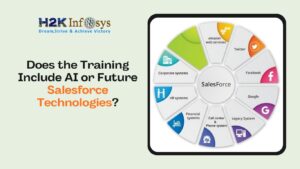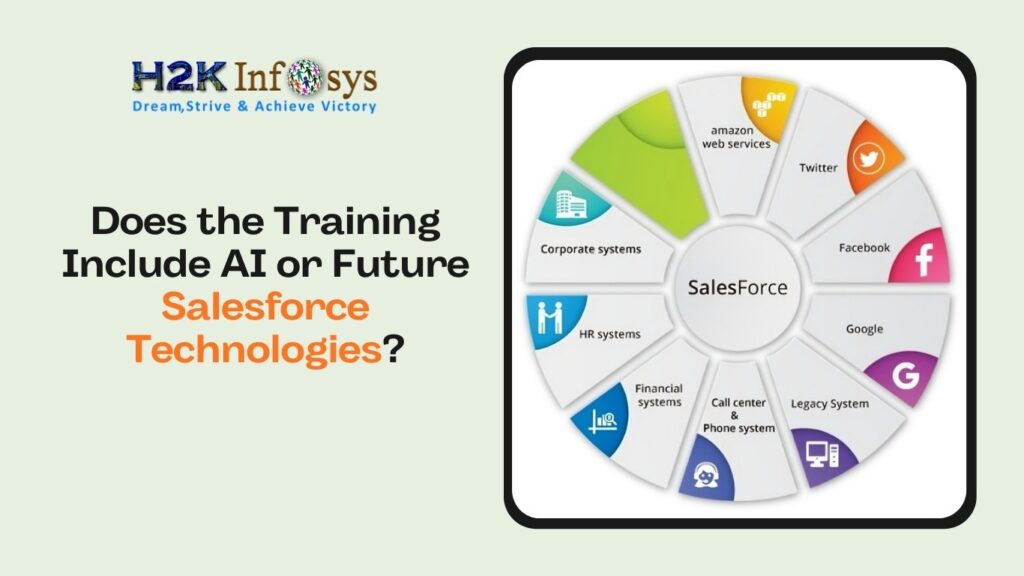In the rapidly evolving world of business and technology, Business Analysts (BAs) play a pivotal role in bridging the gap between business needs and technological solutions. They gather requirements, analyze processes, recommend changes, and support teams throughout the project lifecycle. But what exactly makes a Business Analyst successful? Is it their technical knowledge, or is it their soft skills that make the real difference?
This will dive deep into the ongoing debate of technical skills vs soft skills and explore what truly matters more for Business Analysts today. Whether you are enrolling in an Online Course Business Analyst understanding the importance of balancing both skillsets will set you on the right career path.
Understanding Technical Skills for Business Analysts
Technical skills refer to the specific knowledge and abilities required to perform particular tasks. In the context of Business Analysis, technical skills often include:
1. Requirements Gathering and Analysis
Requirements gathering and analysis is one of the most critical stages in any project lifecycle. It forms the foundation for designing, developing, and delivering solutions that meet business needs. Business Analysts play a pivotal role in this phase by working closely with stakeholders to identify, document, and validate what is required from a solution.
The process starts with eliciting requirements through techniques such as interviews, surveys, workshops, observations, and document analysis. Effective elicitation ensures that the true needs of the stakeholders are captured, not just their expressed desires. This phase requires strong communication skills, active listening, and the ability to ask the right questions to uncover underlying business problems.
Once requirements are gathered, the next step is analysis. During analysis, the Business Analyst examines the information to identify gaps, inconsistencies, and conflicts. They prioritize the requirements based on business value, feasibility, and urgency. Creating visual models like use cases, process flows, and entity-relationship diagrams can help simplify complex requirements and make them easier for stakeholders to understand.
A crucial part of requirements analysis is validation. Analysts must ensure that every documented requirement is aligned with business objectives and is testable. Requirements must be clear, complete, consistent, and unambiguous.
Failure in gathering and analyzing requirements effectively often leads to project delays, cost overruns, and solutions that do not meet business expectations. That’s why mastering requirements gathering and analysis is a core competency emphasized in Business analyst online course. These programs provide practical tools and frameworks to improve accuracy and effectiveness during this crucial phase.
In essence, strong skills in requirements gathering and analysis help bridge the gap between stakeholder expectations and technical solutions, ensuring that projects deliver real business value.
2. Modeling and Diagramming
Modeling and diagramming are essential techniques that help Business Analysts represent complex business processes, systems, and requirements in a visual and easy-to-understand format. Visual models serve as a bridge between stakeholders and technical teams, ensuring that everyone shares a clear and consistent understanding of the business solution.
During modeling, Business Analysts use various techniques to depict workflows, data flows, organizational structures, system behaviors, and relationships between entities. Common diagrams include process flowcharts, use case diagrams, activity diagrams, sequence diagrams, and entity-relationship diagrams (ERD). Tools such as Microsoft Visio, Lucidchart, draw.io, and even specialized software like Bizagi are widely used for creating professional diagrams.
Diagramming is not just about drawing; it’s about analyzing and clarifying information. Visual representations help identify gaps, redundancies, and inefficiencies in existing processes, making it easier to propose improvements or design new solutions.
Modeling techniques are especially crucial when working with Agile teams, where user stories and process flows must be clearly mapped. Effective models reduce misunderstandings, speed up decision-making, and provide a foundation for testing and validation.
Developing expertise in modeling and diagramming is a core part of many online courses business analysis and a standard topic in every comprehensive Business analyst online course. These skills enable Business Analysts to translate complex business needs into actionable insights that drive successful project outcomes.
3. Data Analysis and SQL
Data analysis and SQL are critical skills for Business Analysts who need to work with large volumes of information to make informed decisions. Data analysis involves interpreting, organizing, and presenting data to uncover insights that can drive business improvements. Business Analysts often analyze customer behavior, operational metrics, sales performance, or financial trends to support strategic planning.
SQL (Structured Query Language) plays a vital role in accessing and manipulating data stored in relational databases. With SQL, Business Analysts can write queries to retrieve specific information, filter records, join tables, and perform basic calculations. Understanding SQL empowers analysts to validate data, perform root cause analysis, and build meaningful reports without always relying on developers or database administrators.
Proficiency in data analysis and SQL ensures that Business Analysts can back their recommendations with real, data-driven evidence. Many Business analyst online course offerings now include hands-on SQL exercises and data projects to help learners gain confidence in handling business data.
Today, data-driven decision-making is at the core of successful organizations, and Business Analysts equipped with strong data analysis and SQL skills are better positioned to deliver actionable insights and add measurable value to their companies.

4. Technical Documentation
Technical documentation is a crucial responsibility for Business Analysts, serving as the foundation for clear communication between stakeholders, development teams, and project managers. Good technical documentation ensures that business requirements are accurately translated into actionable deliverables, minimizing the risks of misunderstandings and project delays.
Common types of technical documents created by Business Analysts include the Business Requirements Document (BRD), Functional Requirements Document (FRD), User Stories, and Use Case Specifications. These documents define what needs to be built, why it is needed, and how it should function, ensuring that both business users and technical teams are aligned.
Creating high-quality documentation involves more than just writing; it requires analyzing information, organizing ideas logically, and presenting them in a format that is accessible to both technical and non-technical audiences. Diagrams, tables, and flowcharts are often integrated into documentation to make complex ideas easier to understand.
Technical documentation is living material 2014 it evolves with project updates and stakeholder feedback. Maintaining version control and ensuring traceability are essential practices for effective documentation management.
Learning how to produce professional-grade technical documentation is emphasized in many online courses business analysis and is a critical component of any Business analyst online course. These programs train learners to structure information clearly and create documents that drive successful project outcomes.
5. Familiarity with Software Development Methodologies
Familiarity with software development methodologies is an essential competency for Business Analysts working in today’s fast-paced technology environments. A Business Analyst must understand how projects are structured, developed, and delivered to collaborate effectively with technical teams and ensure business needs are met.
The most common methodologies include Waterfall, Agile, Scrum, Kanban, and DevOps practices. Each approach has its own principles, processes, and documentation requirements. For example, in Waterfall projects, Business Analysts often prepare detailed upfront documentation like Business Requirements Documents (BRDs) before development begins. In Agile and Scrum environments, BAs work iteratively, creating user stories, maintaining product backlogs, and participating in daily stand-ups and sprint planning meetings.
Understanding these methodologies enables Business Analysts to align their deliverables with the project structure, whether it requires comprehensive specifications (Waterfall) or evolving requirements through collaboration (Agile). Moreover, familiarity with Agile frameworks allows BAs to adopt roles such as Product Owner proxies or Scrum team facilitators, enhancing their versatility and value to organizations.
In a world where companies are increasingly shifting towards Agile, being proficient in different development methodologies not only improves a Business Analyst’s effectiveness but also boosts career prospects across various industries. Mastery of these approaches ensures that Business Analysts can deliver solutions that are not just functional but are also developed efficiently, collaboratively, and in alignment with business goals.
6. Knowledge of Business Intelligence Tools
In today’s data-driven business environment, knowledge of Business Intelligence (BI) tools has become increasingly important for Business Analysts. BI tools help organizations transform raw data into meaningful insights that support strategic decision-making, performance tracking, and process improvement.
Business Analysts use BI tools such as Tableau, Power BI, QlikView, and Google Data Studio to create interactive dashboards, visualize data trends, and generate reports that highlight key business metrics. These tools allow analysts to identify patterns, detect inefficiencies, and uncover new opportunities based on data-driven evidence rather than intuition alone.
Proficiency in BI tools enables Business Analysts to communicate findings more effectively to stakeholders through visual storytelling. It also empowers them to perform independent data exploration, reducing reliance on technical teams for basic data retrieval and analysis.
Understanding and applying Business Intelligence tools is no longer optional it is a crucial skill for any Business Analyst aiming to drive real value through data insights.
Understanding Soft Skills for Business Analysts
Soft skills refer to personal attributes that enable someone to interact effectively with others. For Business Analysts, these skills are just as critical as technical ones.
1. Communication Skills
Communication skills are fundamental for Business Analysts, as they act as the bridge between business stakeholders and technical teams. Clear and effective communication ensures that requirements are accurately gathered, expectations are managed, and solutions are well understood. Business Analysts must be skilled in both verbal and written communication, facilitating meetings, conducting interviews, and preparing documentation that is easy for diverse audiences to comprehend. Strong communication also involves active listening, asking clarifying questions, and presenting complex ideas simply.
2. Problem-Solving Abilities
Problem-solving abilities are crucial for Business Analysts, who often face complex challenges that require thoughtful analysis and innovative solutions. A Business Analyst must quickly identify root causes, evaluate alternatives, and recommend effective strategies that align with business goals. Strong problem-solving skills enable BAs to navigate ambiguity, manage changing requirements, and support successful project outcomes. Whether addressing process inefficiencies or adapting to shifting business needs, the ability to think critically is vital.
3. Negotiation and Persuasion
Negotiation and persuasion are essential skills for Business Analysts who often mediate between stakeholders with differing priorities. A Business Analyst must negotiate requirements, timelines, and resources while ensuring that business objectives remain the focus. Persuasion skills help BAs present their findings and recommendations convincingly, gaining stakeholder buy-in and promoting collaboration. Effective negotiation minimizes conflicts and fosters consensus, leading to smoother project delivery
4. Emotional Intelligence
Emotional intelligence is a critical skill for Business Analysts, enabling them to understand and manage both their own emotions and those of others. High emotional intelligence helps BAs build trust, navigate conflicts, and foster productive relationships with stakeholders. It enhances empathy, active listening, and decision-making, especially when dealing with complex or sensitive business situations. Business Analysts with strong emotional intelligence are better equipped to handle stakeholder resistance and facilitate change.
5. Adaptability
Adaptability is a vital trait for Business Analysts working in fast-changing business environments. Projects often encounter shifting requirements, evolving technologies, and unexpected challenges. A successful Business Analyst must remain flexible, adjusting strategies and approaches without losing focus on business goals. Adaptability allows BAs to manage uncertainty, embrace new ideas, and support innovation within teams. It also fosters resilience and quick learning in dynamic project settings.
6. Analytical Thinking
Analytical thinking is a core competency for Business Analysts, enabling them to break down complex business problems into manageable parts. Through structured analysis, BAs identify patterns, root causes, and opportunities for improvement. Analytical skills help in creating accurate requirement documents, evaluating solution options, and supporting data-driven decision-making. Strong analytical thinking also ensures that proposed solutions align with business objectives and stakeholder needs.
Why Technical Skills Are Important
Without technical skills, a Business Analyst might struggle to perform core job responsibilities effectively. Especially when working in IT-driven industries, technical knowledge can:
- Increase credibility with technical teams
- Help in understanding complex systems and workflows
- Enable quicker and more accurate requirement gathering
- Improve the ability to validate solutions against requirements
Enrolling in online courses business analysis can equip aspiring Business Analysts with the technical foundation they need. Many Business Analyst Online Course options offer hands-on projects where learners gain practical exposure to technical aspects.
Why Soft Skills Are Crucial
Technical know-how alone isn’t enough. Business Analysts must interact with people daily stakeholders, developers, project managers, QA teams, and customers. Here’s why soft skills are often seen as even more critical:
- Stakeholder engagement heavily depends on communication and emotional intelligence.
- Understanding business needs requires empathetic listening.
- Building trust across diverse teams necessitates strong interpersonal skills.
- Driving change in an organization often requires influencing skills.
Soft skills are harder to “teach” through formal education but can be developed over time with real-world experience and guided practice. Some online courses business analysis now include modules on developing communication and stakeholder management skills to address this gap.
Finding the Right Balance: Technical vs Soft Skills
The debate shouldn’t focus on “either-or” but rather “both-and.” Modern Business Analysts must master both technical and soft skills to thrive. Here’s a breakdown:
| Scenario | Critical Skillset |
|---|---|
| Working with Developers | Technical Skills |
| Leading Requirement Workshops | Soft Skills |
| Creating Data Reports | Technical Skills |
| Negotiating Project Scope | Soft Skills |
| Writing Business Cases | Both |
| Supporting Agile Teams | Both |

The ideal Business Analyst understands when to rely on their technical expertise and when to lean into soft skills.
How Online Courses Business Analysis Help Build Both Skillsets
Quality online courses business analysis programs are designed to nurture both technical and soft skills. Here’s how:
Technical Skill Development
- Training on tools like JIRA, Confluence, SQL, Visio, and Tableau
- Case studies involving real-world system analysis
- Hands-on projects to simulate requirement gathering and documentation
Soft Skill Development
- Simulated stakeholder interviews
- Group projects encouraging collaboration
- Role-playing exercises to practice negotiation and presentation skills
Choosing a comprehensive Business analyst online course ensures that learners build a holistic skillset rather than becoming one-dimensional professionals.
Real-World Examples: Skills in Action
Example 1: The Data-Driven Analyst
Sarah works in a retail company analyzing customer data. Her SQL skills help her query databases efficiently, but it’s her ability to present her findings clearly to executives that drives decision-making. Her success lies in her blend of technical and communication skills.
Example 2: The Process Improvement Champion
Mike was hired to streamline operations in a logistics company. Using his process modeling skills, he identified bottlenecks. But it was his negotiation skills that helped him convince stakeholders to implement changes, proving the importance of soft skills alongside technical prowess.
Skills Roadmap for Aspiring Business Analysts
- Start with a solid foundation: Enroll in a reputable Business analyst online course to learn core technical skills.
- Practice active listening: Attend webinars, networking events, and mock interviews.
- Sharpen your tools: Get hands-on experience with BA tools like JIRA, SQL, and data visualization platforms.
- Develop a portfolio: Document real-world case studies, projects, and process improvement initiatives.
- Focus on continuous improvement: Both technical and soft skills require regular updates.
Conclusion:
In truth, both technical and soft skills are essential for Business Analysts. Neglecting one for the other can limit a BA’s effectiveness and career growth. While technical skills open doors and build credibility, soft skills create long-lasting relationships and ensure that projects are successfully delivered.
Today’s leading online courses business analysis and Business analyst online course options recognize this balance. They are designed to help learners master technical proficiencies while nurturing the human skills that drive collaboration and change.
As industries continue to evolve, the most successful Business Analysts will be those who not only understand the technology but also the people behind the processes.


























